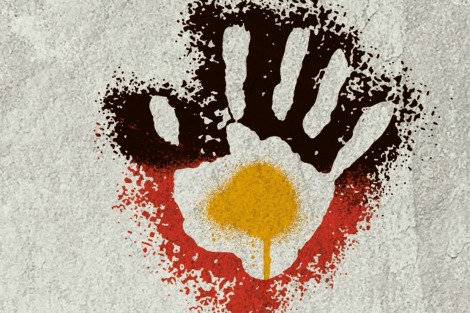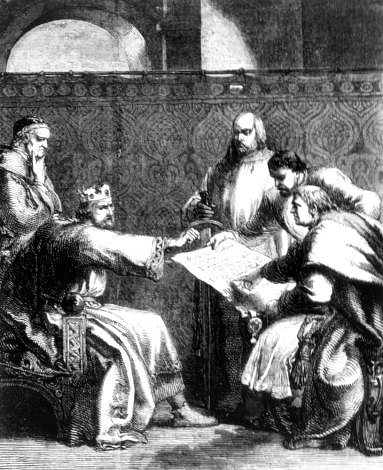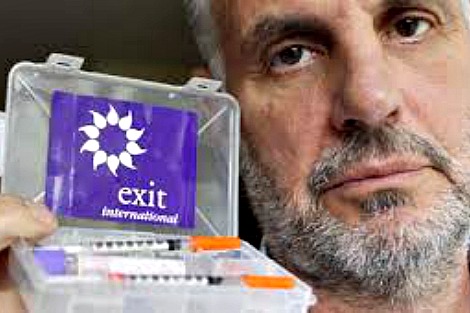Keywords: Human Rights Charter
-

AUSTRALIA
- Frank Brennan
- 28 October 2016
7 Comments
Even prior to Brexit, the Conservatives were wanting to replace the UK Human Rights Act with weaker legislation. They have been worried about what they perceive to be a loss of sovereignty. But even the British Conservatives remain committed to some form of human rights act. I commend the Queensland parliament for undertaking its present inquiry, and sound a cautious note of optimism about the modest gains which might be made by the enactment of a human rights act in Australia.
READ MORE 
-

RELIGION
- Frank Brennan
- 23 September 2016
18 Comments
'No good will be served by a royal commission auspiced by the state telling a Church how it judges or complies with its theological doctrines and distinctive moral teachings. By all means, set universal standards of practice expected of all institutions dealing with children, but do not trespass on the holy ground of religious belief and practice.' Fr Frank Brennan SJ addresses the Freedom for Faith Conference in Melbourne, 23 September 2016.
READ MORE
-

AUSTRALIA
'We have now got a world wide refugee problem. We don't have one here but we do have one world wide. It is now time to start having a rational debate about what we do with these people as opposed to playing the race card.' Interview with Anna Burke, who has represented the seat of Chisholm in the House of Representatives for the ALP since 1998. Burke is the former Speaker of the House (2012–2013), and has been a consistent advocate for asylum seekers. She will retire at the next election.
READ MORE 
-

AUSTRALIA
- Frank Brennan
- 10 December 2015
I first met this Tony on my regular visits here to Darwin when he was working at the North Australian Aboriginal Legal Aid Service and then when he set up the mediation services under the auspices of Anglicare. In later years I knew him when he was your Anti-Discrimination Commissioner. He was a quiet, considered, gentle, strong and principled man. On Human Rights Day, it is only fitting that I honour Tony by offering some reflections on the architecture for human rights in Australia, on the contemporary human rights controversies, and on the way forward for better protection of the human rights of Aborigines and asylum seekers, two marginalised groups who had a special claim on Tony's sympathies.
READ MORE
-

AUSTRALIA
- Andrew Hamilton
- 09 December 2015
11 Comments
Although they can be inconvenient, human rights matter. It is important for nations to recognise them and for citizens to defend them. The survivors of the Second World War who had seen the gross violations of human rights under both Nazi and Communist regimes clearly saw this. These states regarded human rights as a privilege that they could give and take away as they chose. History spells out in the alphabet of gas chambers and gulags what that attitude meant for their subjects.
READ MORE 
-

RELIGION
- Frank Brennan
- 04 December 2015
1 Comment
'Tonight, gathered here in the Southern Cross Club in the national capital, gathered as Eureka's children. We affirm that there is room for everyone under the Southern Cross. I hope you will return to Canberra carrying the Southern Cross flag when we proclaim the Australia Republic on 1 January 2020 which will be two elections after Australia last had a monarchist leader of a major political party. Tony Abbott is the last of his type. Whether the prime minister honoured to witness the proclamation is Malcolm Turnbull, Bill Shorten or another matters not.' Annual Dinner for Eureka's Children, Southern Cross Club, Canberra, 3 December 2015.
READ MORE
-

RELIGION
- Frank Brennan
- 27 November 2015
2 Comments
'The crisis of child sexual abuse in our societies has required that our institutional procedures be more transparent and that we learn from the ways of the world in exercising power openly and justly. This means we have to restructure some of our church arrangements so that power is exercised accountably and transparently. All of us who have positions of influence and power in institutional churches need to be attentive to the voices of those who have suffered within our institutions.' 'Discerning the place for the prophetic voice and pragmatic cooperation of the churches in the great moral questions of the age', address to the Association of Practical Theology in Oceania conference, 26 November 2015.
READ MORE
-

AUSTRALIA
- Frank Brennan
- 16 October 2015
2 Comments
I acknowledge those Aborigines and Torres Strait Islanders who insist that they have never ceded their sovereignty to the rest of us. I join with those Aborigines and Torres Strait Islanders who hope for better days when they are recognised in the Australian Constitution. As an advocate for modest constitutional recognition for Indigenous Australians, I respect those Aborigines and Torres Strait Islanders who question the utility of such recognition. But I do take heart from President Obama's line in his Charleston eulogy for the late Reverend Clementa C. Pinckney: 'Justice grows out of recognition'.
READ MORE
-

- Frank Brennan
- 18 September 2015
Pope Francis's concerns are not narrowly dogmatic or pedagogical but universally pastoral. He knows that millions of people, including erstwhile Catholics, are now suspicious of or not helped by notions of tradition, authority, ritual and community when it comes to their own spiritual growth which is now more individual and eclectic. He wants to step beyond the Church's perceived lack of authenticity and its moral focus on individual matters, more often than not, sexual. He thinks the world is in a mess particularly with the state of the planet — climate change, loss of biodiversity and water shortages, but also with the oppression of the poor whose life basics are not assured by the operation of the free market, and with the clutter and violence of lives which are cheated the opportunity for interior peace. He is going to great pains to demystify his office. He wants all people of good will to emulate him and to be both joyful and troubled as they wrestle with the probl
READ MORE
-

INTERNATIONAL
- Binoy Kampmark
- 17 June 2015
3 Comments
It was far from democratic and arose from circumstances of pure opportunism, but the Magna Carta was created as a break on arbitrary rule and power. Therefore contemporary moves to undermine such principles as the rule of law are prescient. Australia's parliament commemorates its birthday even as it extends the reach of national security laws and endorses a draconian refugee policy.
READ MORE 
-

AUSTRALIA
- Ellena Savage
- 24 April 2015
13 Comments
Australian references to 'boat people' is simplistic and offensive. 'Queue jumper' inaccurate and moralising. Even the term 'asylum seeker' has become politically complicit. European coverage of this week's Mediterranean boat tragedy describes the victims and survivors simply as 'migrants', which is an open description of a person on a boat crossing borders.
READ MORE 
-

AUSTRALIA
- Frank Brennan
- 05 November 2014
38 Comments
Physician assisted suicide and euthanasia are back, in the courts of Canada and the UK, and in the parliaments of the UK and Australia. The Australian Senate is considering the Greens' formulation of a broad and fuzzy law that goes further than UK proposals in that it would allow Dr Philip Nitschke to administer a fatal injection.
READ MORE 